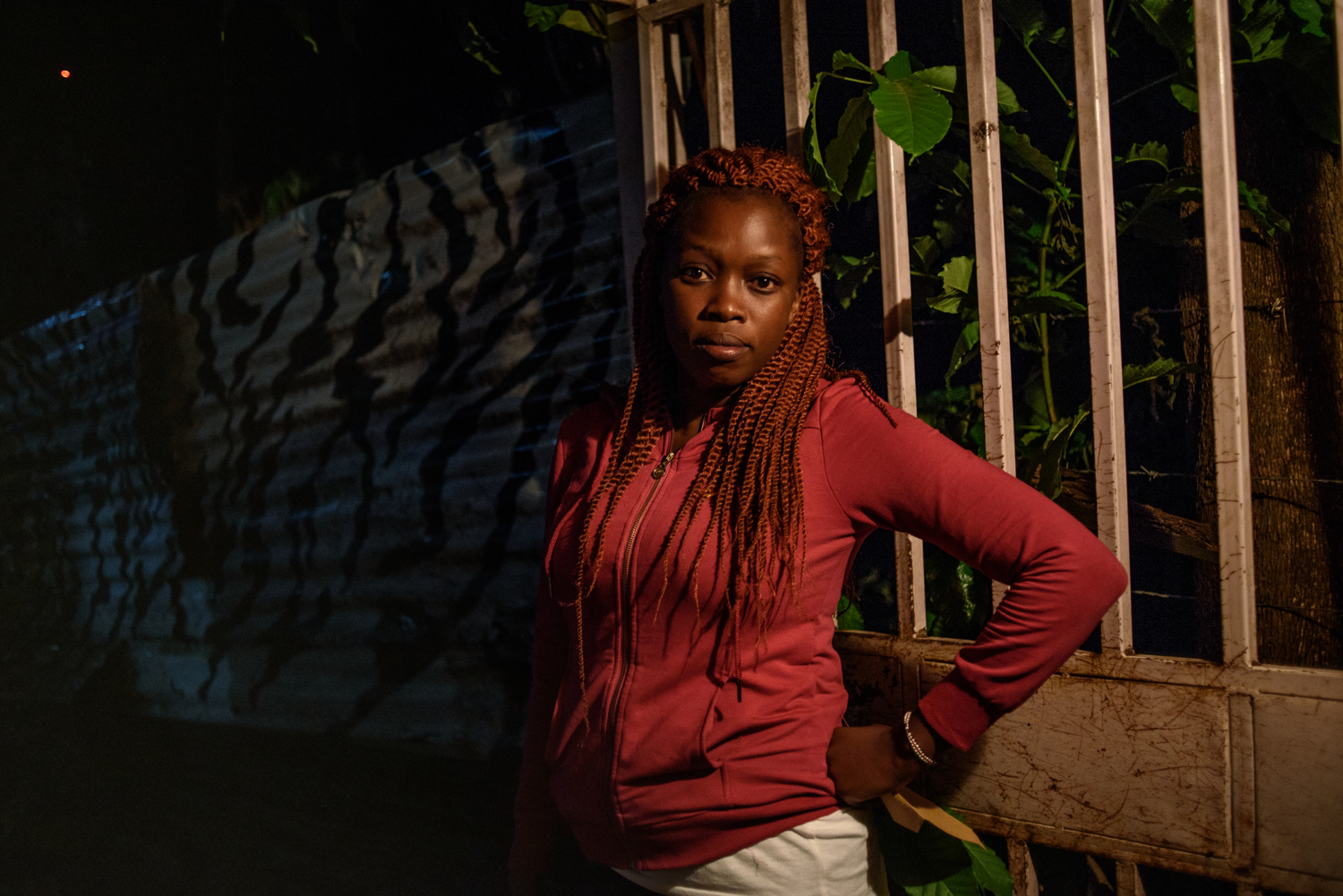
Shantel is an HIV-negative sex worker and sex educator for other young women who work at bars and beaches in Homa Bay on Lake Victoria. She brings them condoms, teaches them about their reproductive and sexual health, and tells them what their rights are if a client becomes violent.
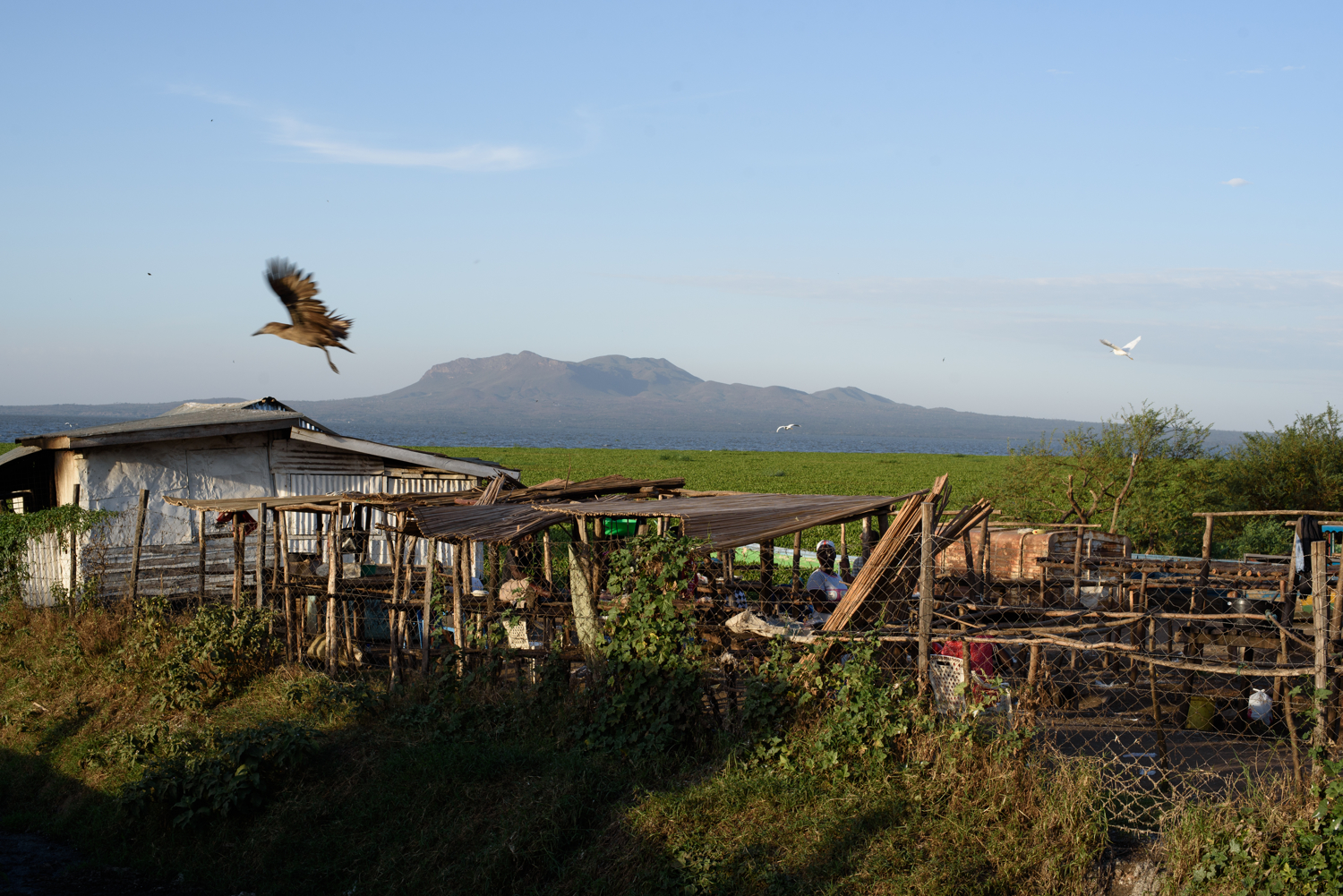
View of a fish market on the shores of Lake Victoria in Homa Bay, Kenya on 12 February 2017. This beach is one of several in Homa Bay where women and girls are coerced into trading sex for fish by the fisherman who ply their wares in the area.
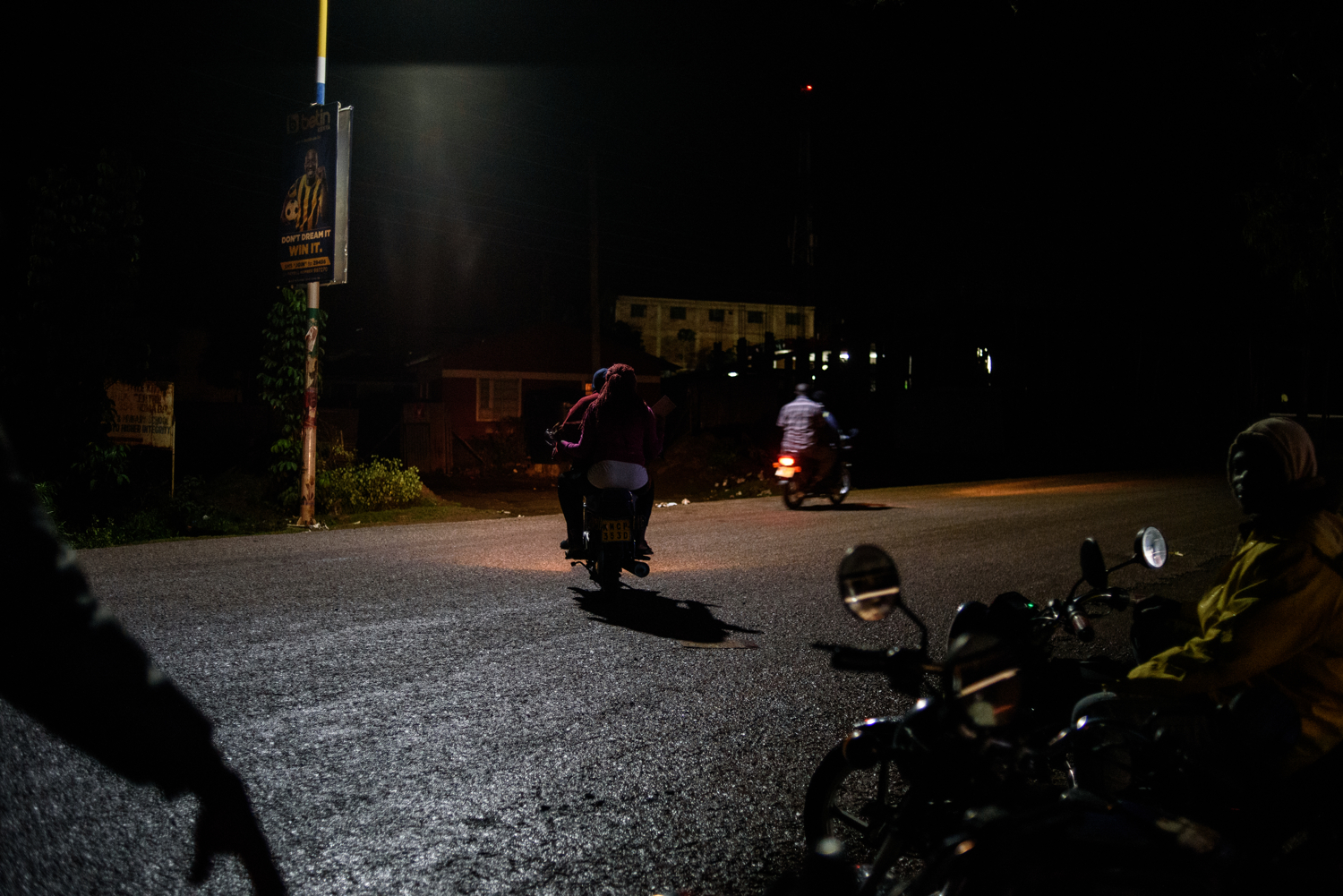
Shantel takes a motorbike taxi to pick up condoms and hand them out to young sex workers in Homa Bay.

Quinta’s parents died when she was 15. She stayed with her sister and started sex work at age 28. “I didn’t know much about sex work. I was just trying to get some money,” she says. “After going with one man, I had sex and he refused to pay. I was angry and I left him and went to look for another client.”
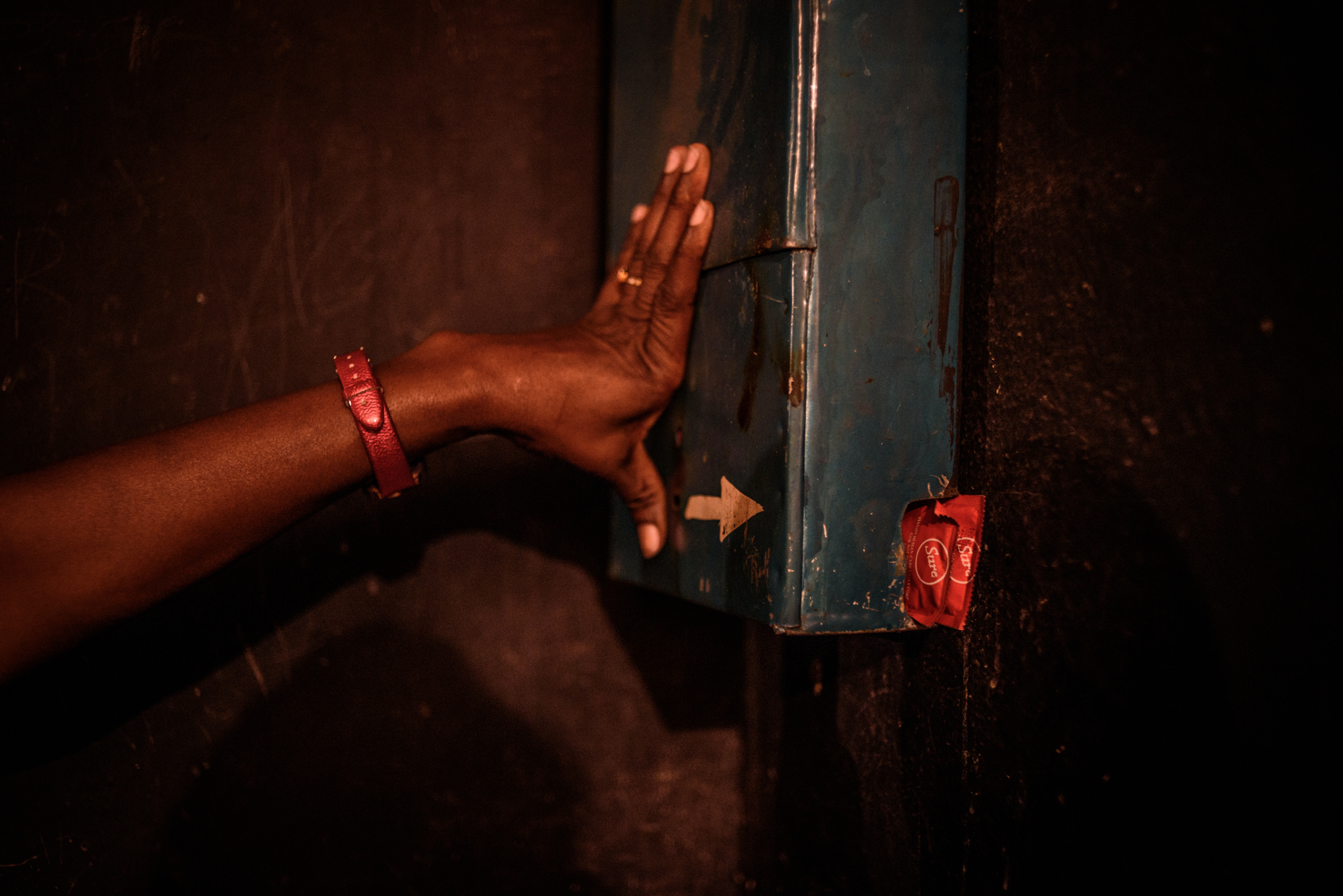
Sex worker and peer educator Evaline puts condoms into a designated box at a nightclub.
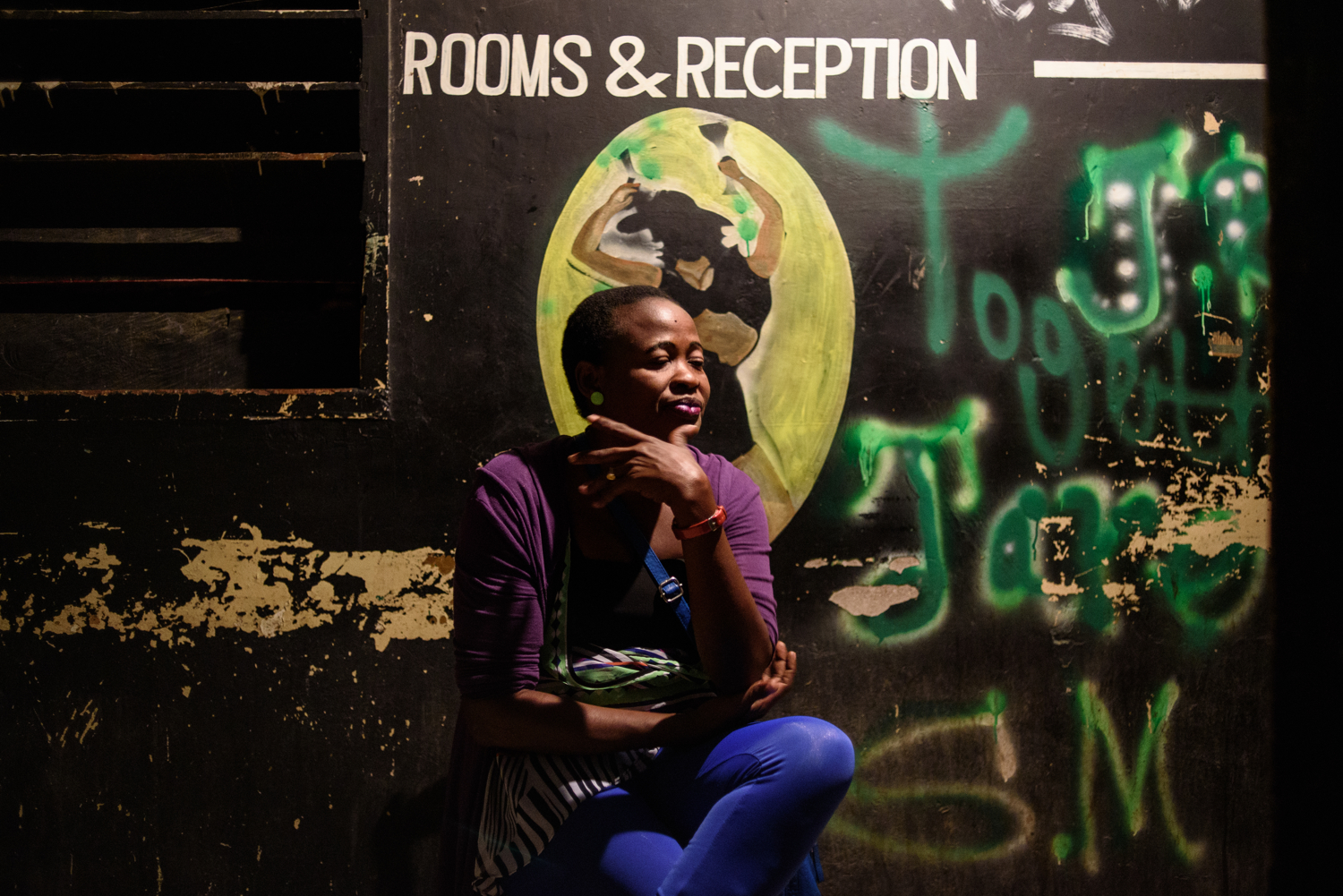
After her parents died, Evaline worked as a maid. “The family mistreated me. I decided to leave and started sex work,” she says. She has been a sex worker in Homa Bay for about ten years.

Eunice Ojollah advises women and girls on sexual and reproductive health at Makongeni Health Center in Homa Bay, Kenya. Makongeni Health Center provides free treatment, medical consultations, and condoms for sex workers. Peer educators and mentors, themselves sex workers, travel around to bars, beaches, and hotels to distribute condoms and advise the young sex workers about personal security and what their rights are if a client gets violent. Eunice says that new HIV infections among sex workers have decreased since the program started in 2015.
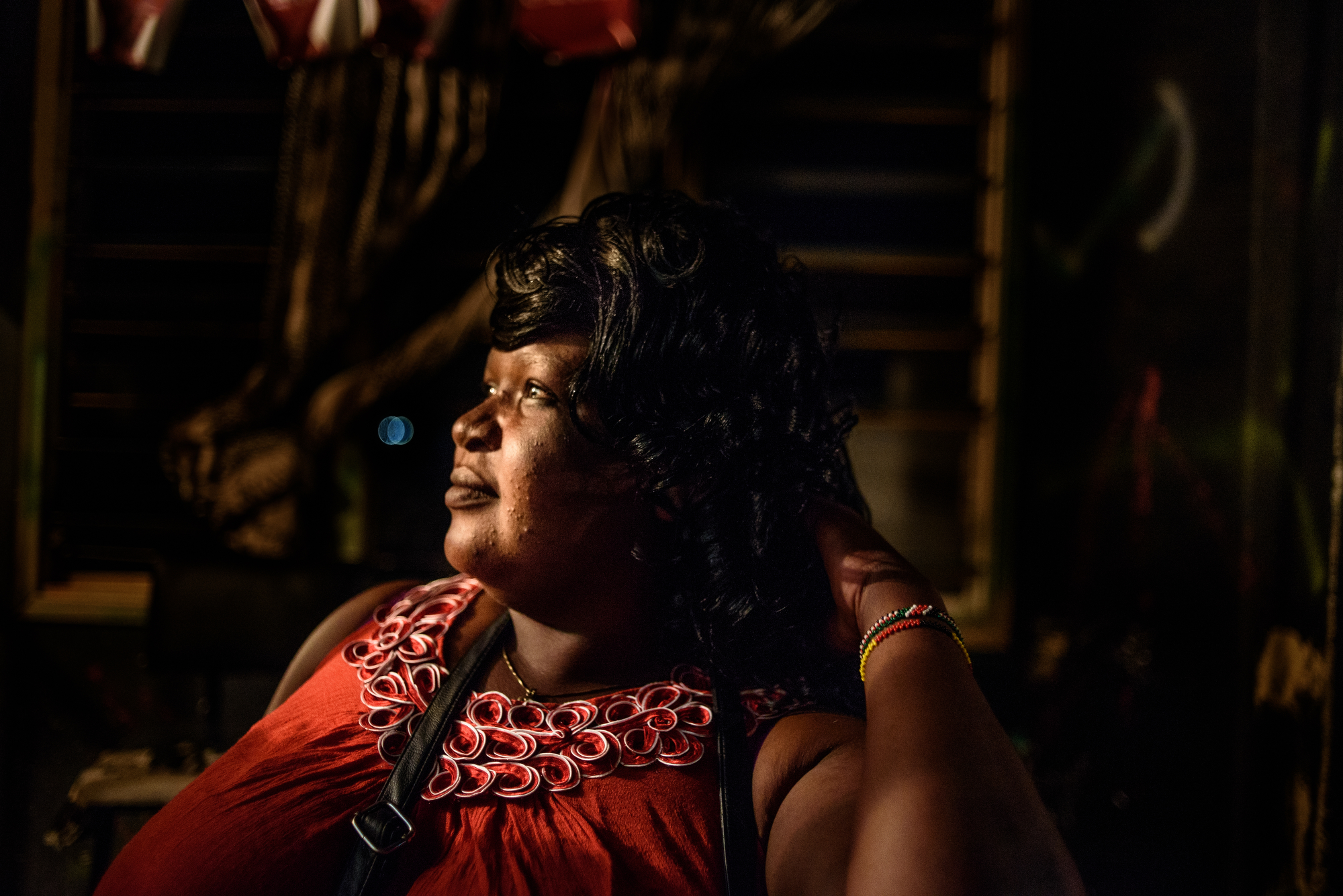








Shantel is an HIV-negative sex worker and sex educator for other young women who work at bars and beaches in Homa Bay on Lake Victoria. She brings them condoms, teaches them about their reproductive and sexual health, and tells them what their rights are if a client becomes violent.
View of a fish market on the shores of Lake Victoria in Homa Bay, Kenya on 12 February 2017. This beach is one of several in Homa Bay where women and girls are coerced into trading sex for fish by the fisherman who ply their wares in the area.
Shantel takes a motorbike taxi to pick up condoms and hand them out to young sex workers in Homa Bay.
Quinta’s parents died when she was 15. She stayed with her sister and started sex work at age 28. “I didn’t know much about sex work. I was just trying to get some money,” she says. “After going with one man, I had sex and he refused to pay. I was angry and I left him and went to look for another client.”
Sex worker and peer educator Evaline puts condoms into a designated box at a nightclub.
After her parents died, Evaline worked as a maid. “The family mistreated me. I decided to leave and started sex work,” she says. She has been a sex worker in Homa Bay for about ten years.
Eunice Ojollah advises women and girls on sexual and reproductive health at Makongeni Health Center in Homa Bay, Kenya. Makongeni Health Center provides free treatment, medical consultations, and condoms for sex workers. Peer educators and mentors, themselves sex workers, travel around to bars, beaches, and hotels to distribute condoms and advise the young sex workers about personal security and what their rights are if a client gets violent. Eunice says that new HIV infections among sex workers have decreased since the program started in 2015.